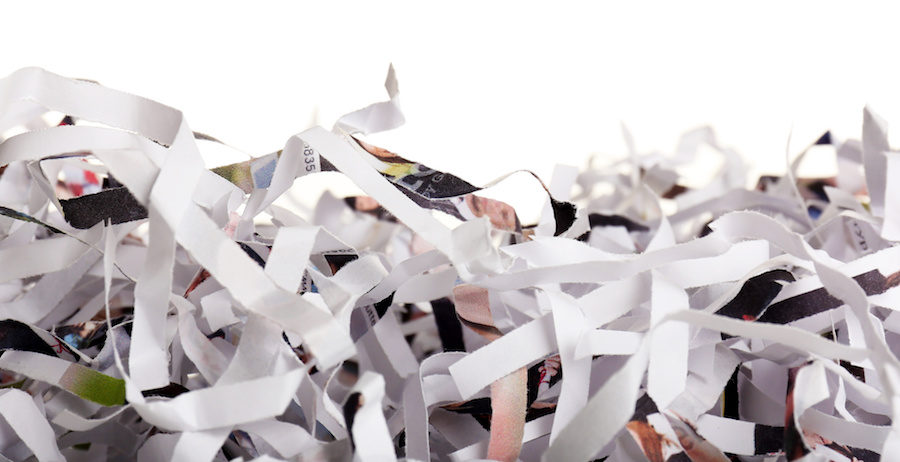When it comes to records management some businesses forget that in order to remain compliant their confidential documents should not only be safely stored, but also safely destroyed.
Document destruction seems simple enough – how hard can throwing something away be anyway?
Actually, getting document disposal right is often harder than employees think. There are numbers of potential risks involved with disposing a document, especially if that document is particularly valuable or confidential in nature.
Whilst many businesses are vigilant when it comes to document storage, often employees will forget to deploy that vigilance when it comes to file destruction. The consequences of this can be great.
To learn more about the current EU data protection regulations check out this post: The Road to Data Protection Reforms
Why File Shredding Matters
Here are just some of the potential risks associated with a below par document disposal system:
- Documents are vulnerable to third party infiltration
- A system that could be environmentally hazardous
- Accidental destruction of required files
- Files not properly destroyed so they are still legible
- Health and safety risks
- Document waste incorrectly disposed of
Such risks mean that businesses are frequently looking to record management professionals to carry out their document destruction for them.
Choosing An Offsite Shredding Provider
Many businesses only discover the advantages of using a professional file shredding service after they have begun transferring their documents offsite for disposal. Here are five benefits of using a shredding facility that businesses should know before they opt for an offsite partnership.
1. Security
One of the biggest risks of onsite shredding is that files might not be correctly destroyed and could be vulnerable to theft. If a file is still legible after it has been disposed of then it has not been destroyed correctly. Even files that are not deemed particularly important could still be used for corporate identity theft, or perhaps be used by a competitor.
When it comes to document destruction uniformity is key. Carefully handling every file during disposal is the easiest way of guaranteeing that no file will be left unprotected.
An offsite shredding facility should have the expertise to make sure all of a businesses’ documents are secure during disposal and should also provide a service that is certain to make every document illegible after it has been destroyed.
2. Environmentally Friendly
Environmental storage and destruction considerations are admittedly not a priority for every business. Implementing green schemes can be quite time consuming and burdensome for employees. However, using an offsite shredding service is an easy way of getting those all important green credentials, with the added benefit of reducing storage overheads!
Most competitive destruction facilities will recycle all of the waste generated by a businesses’ destroyed documents, so employers can be confident that their company is doing right by the environment.
3. Time Savings
Manually disposing of files using an in-house shredder can be very time consuming, as can organizing files in preparation for disposal and determining which files have reached the end of their retention schedules.
Businesses that use a professional shredding service can save themselves precious time that would otherwise have been spent on disposing documents. Some first rate destruction companies might even offer their clients a full audit to determine the right destruction times for their files. What’s more, some record management companies offer document collection and delivery services saving businesses the hassle of transporting their files offsite.
4. Retention Regulations
A professional audit service will stop employees from accidentally throwing away files that should be kept and likewise will enable businesses to dispose of all those files they no longer need to keep, freeing up office space.
Often businesses will keep files for long periods of time unnecessarily, only to later find out they could have – and more importantly should have – disposed of these documents years ago!
Retention regulations are often subject to statutory change and every different type of file has its own retention deadline. It is highly recommended that businesses seek professional guidance in this matter.
5. Effective Records Management
An efficient file disposal system is a sure fire way to get an effective record management process in motion. Once files have been fully audited it is easier for them to be organised, according to type or retention deadlines.
For a business to attain an effective record management system it must closely monitor its files from the moment of creation to destruction. Using the expertise of a record management and storage company is one way of achieving that level of document organisation.











